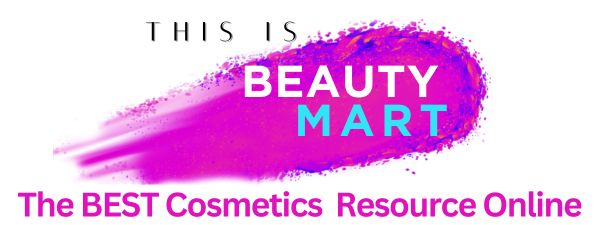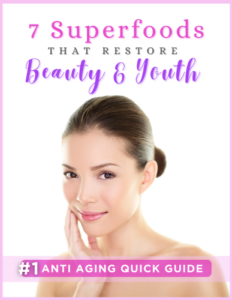Are you looking for the perfect soap to elevate your skincare routine? There’s been quite a buzz around Moroccan Black Soap vs African Black Soap lately, but choosing between the two can be confusing.
This article is here to shed some light on these two uniquely nourishing soaps by unpacking their properties, benefits, and differences. Let’s dive into the world of black soaps and find out which one might just become your new beauty best friend!
Key Takeaways
- Moroccan Black Soap and African Black Soap are both natural, plant-based soaps with unique properties and benefits.
- Moroccan Black Soap is known for its intense exfoliating properties, creamy texture, and cultural significance in Moroccan beauty rituals.
- African Black Soap is versatile, suitable for all skin types, has a solid consistency, and offers healing benefits.
- When choosing between the two, consider your skin type, personal preferences, availability, and affordability.
Table of Contents
What is Moroccan Black Soap?
Moroccan Black Soap, also known as Beldi soap, is a luxurious bath tool that has been used for centuries in Moroccan beauty rituals. It is made from a blend of plant products and natural oils, such as olives, and is well-known for its healing powers and skin-cleansing properties.
To use Moroccan black soap, simply apply it onto damp skin during your shower routine and massage it in using circular motions before rinsing off.
Properties and benefits
Let’s delve into the properties and benefits of Moroccan Black Soap:
- Known for its intense exfoliation, Moroccan black soap effectively removes dead skin cells. It contributes to a smoother, more refined skin texture.
- Due to its 100% natural plant product composition, it offers an organic option for users seeking chemical-free skincare solutions.
- Moroccan black soap comes in various earthy tones – from dark brown to bright brown, depending on the ingredients used. These colors appeal to those who value aesthetic elements in their skincare routine.
- Its creamy consistency, unique among soaps, enhances its application process and heightens the bathing or showering experience.
- More than just a cleanser, Moroccan black soap is part of a rich bath culture in Morocco. Using this product provides you with a unique cultural immersion while delivering essential skincare benefits.
- Despite being slightly pricier than African black soap, it maintains popularity due to its proven results and high-quality ingredients.
- One of the key advantages of African black soap is its versatility. It caters to all skin types making it an inclusive skincare choice.
- Bursting with ingredients known for their healing properties, African black soap not only cleanses but also nurtures your skin with every use.
- Unlike Moroccan black soap, African black soap comes in a solid form – much like traditional soaps you’re familiar with. This makes it easy to handle during daily shower routines.
- Although less luxurious when compared to Moroccan Black Soap’s creamy consistency; its generally more affordable price point makes it an accessible choice for individuals on a budget
- Finally, despite its simplicity, African Black Soap doesn’t compromise on effectiveness. Its natural and healing properties make it just as beneficial for achieving flawless and naturally beautiful skin.
How to use Moroccan black soap
To use Moroccan black soap:
- Wet your body with warm water in the shower or bath.
- Apply a generous amount of Moroccan black soap to your skin.
- Massage the soap into your skin in circular motions, focusing on areas that need extra exfoliation.
- Leave the soap on your skin for about 5 – 10 minutes to allow it to work its magic.
- Rinse off the soap thoroughly with warm water.
- Follow up with a moisturizer to lock in hydration and nourish your skin.
What is African Black Soap?
African Black Soap is a plant-based soap that originates from West Africa and has been used for centuries for its natural healing powers. It is made using traditional methods, combining ingredients like cocoa pods, shea butter, and palm oil to create a dark brown soap with exfoliating and moisturizing properties.
Properties and benefits
Moroccan Black Soap:
- 100% natural plant product
- Contains ingredients with healing powers for all skin types
- Dark brown to bright brown in color, depending on the ingredients used
- Creamy consistency
- Intense exfoliating properties, removing dead skin cells and improving skin texture
- Suitable for all skin types, providing natural and healing benefits
- Made with ingredients that possess healing powers for all skin types
- Solid consistency
- Can be used for daily shower routines
- Easily accessible compared to Moroccan black soap
- Suitable for all skin types, providing natural and healing benefits
How to use African black soap
To use African black soap, follow these steps:
- Wet your face or body with warm water.
- Take a small amount of the soap and lather it up in your hands.
- Gently massage the soap onto your skin using circular motions.
- Leave the soap on your skin for a few minutes to allow it to work its magic.
- Rinse off the soap thoroughly with warm water.
- Pat your skin dry with a clean towel.
- Apply a moisturizer or oil to keep your skin hydrated after using the soap.
Differences Between Moroccan Black Soap and African Black Soap
Moroccan Black Soap is primarily made from olives and has a thick, creamy consistency, while African Black Soap typically contains plant products like shea butter and has a darker brown color.
Ingredients
Moroccan black soap and African black soap differ in their ingredients. Moroccan black soap is made from 100% natural plant products, while African black soap contains healing ingredients that cater to all skin types.
The color of Moroccan black soap can vary from dark brown to bright brown depending on the ingredients used. On the other hand, African black soap has a solid consistency, while Moroccan black soap is creamy in texture.
These variations in ingredients and consistency make each type of soap unique and suitable for different skincare needs.
Manufacturing process
Moroccan black soap and African black soap are made using different manufacturing processes. Moroccan black soap, also known as Beldi soap, is made by combining olives and potash. The mixture is then left to soak for several weeks until it turns into a smooth paste.
On the other hand, African black soap is traditionally made by heating plantain skins or cocoa pods in a pot until they turn to ash. This ash is then mixed with water, oils, and other natural ingredients to create the final product.
So while both soaps are made using natural ingredients, their manufacturing processes differ significantly.
Consistency
Moroccan black soap and African black soap have distinct differences when it comes to consistency. African black soap is solid in form, making it convenient for daily shower routines.
On the other hand, Moroccan black soap has a creamy texture, which makes it ideal for intense exfoliation during a traditional Moroccan bath. The difference in consistency allows each soap to be used in unique ways that cater to different skincare needs.
Whether you prefer the convenience of a solid bar or the luxurious feel of a creamy cleanser, both types of black soaps offer natural and healing properties that can benefit all skin types.
Application
Both Moroccan black soap and African black soap have different applications in skincare routines. African black soap is commonly used for daily shower routines due to its solid consistency, while Moroccan black soap is often used for intense exfoliation during a traditional Moroccan bath.
The creamy texture of Moroccan black soap allows it to effectively remove dead skin cells and improve skin texture. On the other hand, African black soap can be easily incorporated into regular showering habits to cleanse and moisturize the skin.
Both soaps are suitable for all skin types and offer natural healing properties that contribute to achieving flawless and naturally beautiful skin.
Which One Should You Choose?
When it comes to choosing between Moroccan Black Soap and African Black Soap, consider your skin type, personal preferences, and availability. Discover the perfect soap for your skincare routine!
Skin type considerations
Take into account your skin type when choosing between Moroccan black soap and African black soap. Both soaps are suitable for all skin types, but considering your specific needs can help you make a more informed decision:
- Dry Skin: If you have dry skin, both Moroccan and African black soaps can be beneficial due to their moisturizing properties. However, Moroccan black soap, with its creamy consistency, may provide a more nourishing and hydrating experience.
- Oily Skin: For oily skin types, both soaps can help regulate excess oil production and cleanse the pores effectively. African black soap’s solid consistency can provide a slightly deeper cleanse if you prefer a more purifying effect.
- Sensitive Skin: If you have sensitive skin, it is important to choose a soap that is gentle and non-irritating. Both Moroccan and African black soaps are known for their natural ingredients and healing properties, making them suitable options for sensitive skin.
- Combination Skin: If you have combination skin with both oily and dry areas, both Moroccan and African black soaps can help balance your skin’s moisture levels while keeping it clean and refreshed.
Personal preferences
Your personal preferences play a significant role in choosing between Moroccan black soap and African black soap. Consider your skin type and what you want from a soap. If you have dry or sensitive skin, the moisturizing effects of both soaps can be beneficial.
However, if you prefer a solid consistency for daily use, African black soap might be more suitable for your shower routine. On the other hand, if you’re looking for intense exfoliation and an indulgent experience inspired by Moroccan bath culture, Moroccan black soap with its creamy texture might be your preference.
Availability and affordability are also factors to consider since African black soap is typically more accessible and less expensive compared to Moroccan black soap. Ultimately, it’s up to you to decide which one aligns better with your personal preferences and skincare needs.
Availability and affordability
Both Moroccan black soap and African black soap are popular beauty products, but they differ in terms of availability and affordability. African black soap is more easily accessible compared to its Moroccan counterpart.
You can find African black soap in many local stores and online retailers at affordable prices. On the other hand, Moroccan black soap may be a bit harder to find and is often priced higher due to its unique manufacturing process and traditional roots.
However, if you’re willing to invest a little more, it’s worth trying out both soaps to see which one works best for your skincare needs.
Conclusion | Moroccan Black Soap vs African Black Soap
In conclusion, both Moroccan black soap and African black soap offer unique benefits for skincare. Moroccan black soap is ideal for intense exfoliation in a Moroccan bath routine, while African black soap is more suitable for daily shower use.
Ultimately, the choice between these two soaps depends on your personal preferences and availability.
FAQs
1. What’s the difference between Moroccan Black Soap and African Black Soap?
The main difference lies in their manufacture and ingredients used; African black soap is usually a bright brown soap made using traditional methods, while Moroccan black soap, also known as Castile soap, is an olive-based healing soap.
2. Are both soaps natural and beneficial for skincare?
Yes! Both Moroccan Black Soap and African Black Soap are promoted as natural options for skincare routines with exfoliating and moisturizing properties.
3. Is either of the soaps better for specific skin cleansing needs?
While both serve as excellent skin cleansing soaps, some people might prefer one over the other depending on their personal experience and skin reactions to each product’s individual ingredients.
4. Do these soaps fall under beauty or cultural products?
Both! These types of black soap come from rich traditional roots in Morocco and Africa respectively, making them significant culturally. Additionally, they’re commonly used in beauty routines owing to their natural skincare benefits.
5. Can I use these soaps on a daily basis?
Yes, most users incorporate either Moroccan or African black soaps into their daily skincare routine due to their gentle exfoliating nature.



